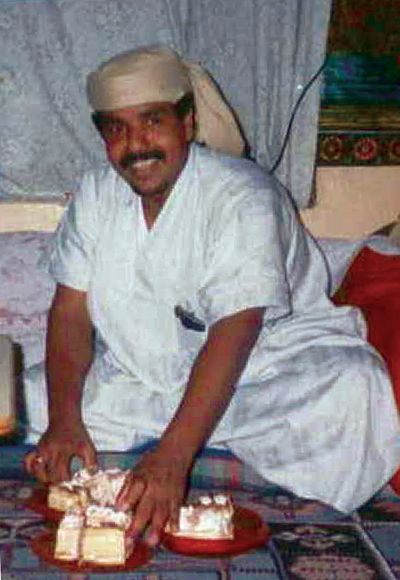Bin Laden driver first to face trial

Nearly seven years after the terrorist attacks of Sept. 11, the first trial of those accused of plotting the attacks starts today when military officials in Guantanamo Bay, Cuba, select a jury to hear the case of Salim Hamdan.
The Yemeni man faces life in prison if convicted of conspiracy and providing material support for terrorism. The military commission system was established by President Bush in the wake of the attacks and revised by the Supreme Court and Congress.
The government says Hamdan was a driver and bodyguard for Osama bin Laden who participated in al-Qaida training camps and transported weapons used to attack U.S. soldiers in Afghanistan.
Hamdan’s lawyers admit he worked for bin Laden but say he was just a minor employee earning $200 a month who had no significant role in terrorism.
The trial will set the course for 19 other Guantanamo detainees whom the Pentagon expects to put on trial. It also shines an international spotlight on the U.S. military and its ability to conduct fair, transparent trials for the detainees.
Charles Stimson, a former deputy assistant Defense secretary for detainee affairs, believes the question of fairness has already been answered, but human rights groups say the commission system strips detainees of basic rights that have been afforded to prisoners of war in the past.
Jamil Dakwar, director of the ACLU’s Human Rights Program, said the fact that the military can use hearsay evidence and statements obtained through harsh interrogation techniques are examples of how the system is flawed.
“We know that the inherent problems are not going to allow this to produce a fair trial. It will only make it a show trial,” said Dakwar, who has traveled to Guantanamo Bay eight times to observe court proceedings.
Stimson believes the military judges who will preside over Hamdan’s trial will restore credibility to the system.
“The military judges have been completely independent and show fidelity to the law, regardless of whether their rulings have gone against the government, which they have numerous times, or the accused,” Stimson said.
Hamdan played a major role in shaping the commission system when the U.S. Supreme Court used his case to halt the commission system. Congress quickly responded by enacting the Military Commission Act of 2006, which mirrored Bush’s original plan and established the system under which Hamdan and other detainees will be tried.